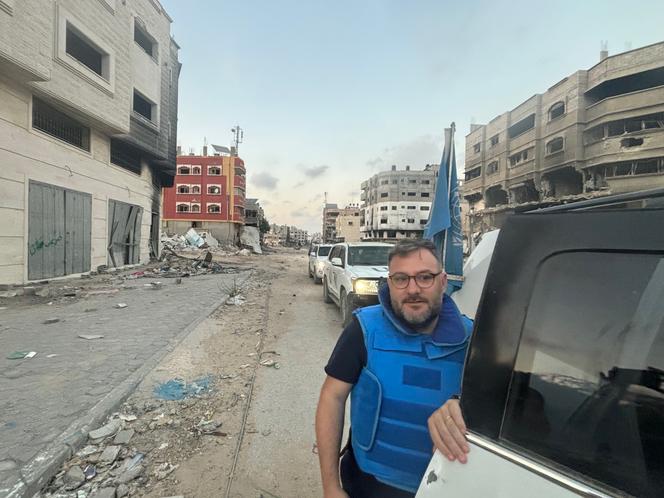


A former diplomat, Alexandre Chatillon heads the NGO Super-Novae. Funded by the French Ministry of Foreign Affairs, it opened an office in Gaza in 2023 to help women find employment and enter the job market. Since October 7, 2023, it has been providing assistance to these displaced women, organizing psychological support and raising awareness of violence against women in refugee camps. It also finances activities for children. On his return from Gaza City, where he visited in early July, he bears witness to the agony of the Palestinian territory.
We can no longer access Rafah, in the south. The neighborhood where I stayed in March has been ravaged. The whole south of the Strip is a field of ruins. I was able to access Deir al-Balah and Gaza City. Humanitarian aid is concentrated in a very small area, at the mercy of Israeli attacks. We are supposed to benefit from a "deconfliction" mechanism. A UN platform allows us to locate the houses we are staying in and report our movements, which are sent to the Israeli authorities for approval. They are supposed to call us to evacuate us if they intervene in the area. In reality, this never happens. Protecting humanitarians is not an issue for the Israeli army.
People have been coming since October [2023]. Often, they've already moved once, twice, three times. The camps for the displaced are now organized, and it feels like it's going to take a long time. In the south, the entire population is parked in the humanitarian zone, which is 4 kilometers long and 1 kilometer wide. Demographic pressure is colossal in such a small area.
The first permanent source of insecurity is bombing. The humanitarian zone was supposed to be a protected area, but as we saw in Nuseirat on July 15, a strike aimed at Hamas's supposed number 2 killed a hundred people. When I'm in Gaza City and I ask people why they don't go south, the answer is always the same: Why go there and still get bombed? They'd rather stay at home. All the people in the south are dreaming of a truce so they can go back up north, where 350,000 people still live. But for the moment, those who try to cross are being shot at by the Israelis. People were killed the day before I arrived. While many remain hopeful – and fortunately so from a psychological point of view – objectively, the entire Gaza Strip is destroyed. It will be decades before people can be properly rehoused. Generations will be lost.
You have 54.78% of this article left to read. The rest is for subscribers only.
